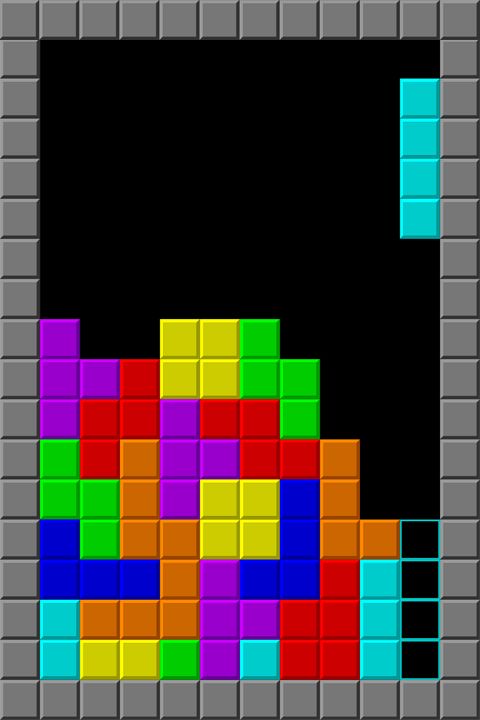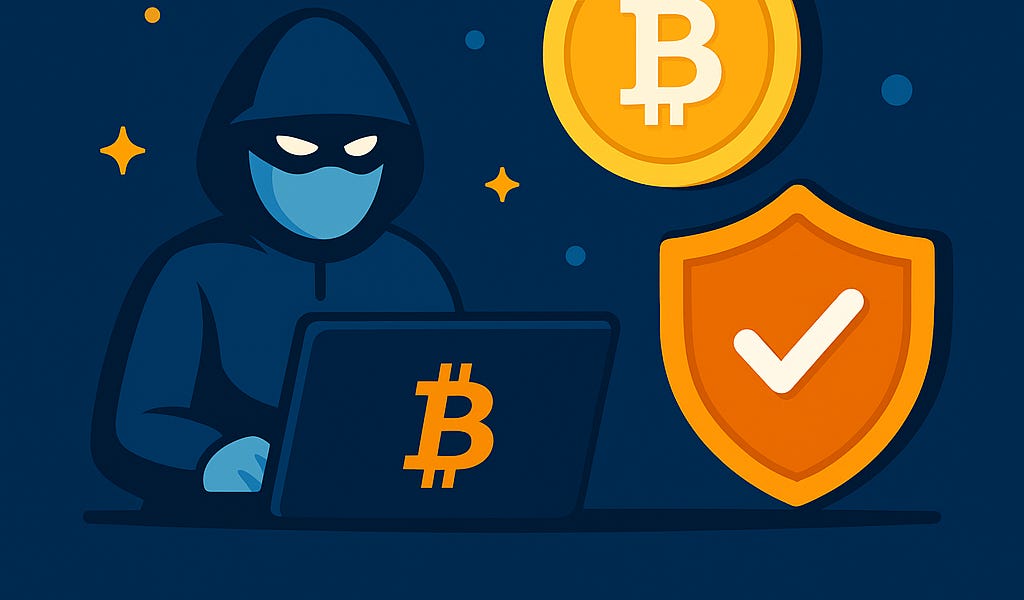For many, is one of the most influential video games of all time. The impact it had on the gaming industry can't be overstated. It has endured for over 40 years by finding new ways to remain relevant, and has firmly established its place in video game history. Created by video game designer Alexey Pajitnov, Tetris' success was accelerated when it was licensed to Nintendo for use on the Game Boy, a deal which was negotiated by Henk Rogers. Along with Pajitnov, Rogers went on to form The Tetris Company to manage all the franchise's licensing.
Game Rant recently attended Gamescom LATAM, and caught up with The Tetris Company co-founder Henk Rogers. He opened up on how he wrote his book The Perfect Game as well as some of his future plans. .
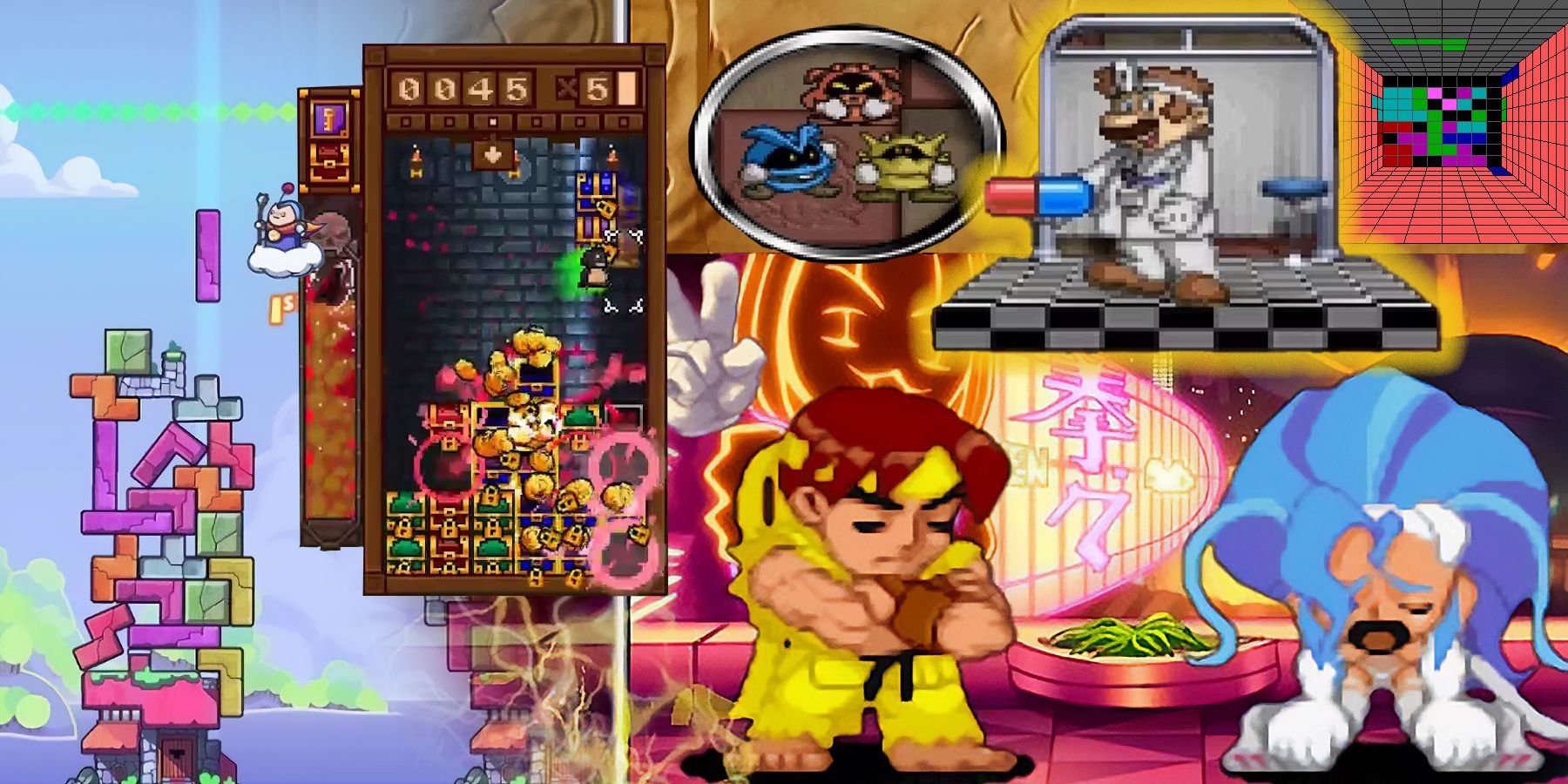
Related
10 Puzzle Games Like Tetris
Tetris is a classic among puzzle games, and the following titles have a charm that's similar to its timeless formula.

OK, Well, Alexey Pajitnov, the creator of Tetris, and I got to review the script of the Tetris movie. The movie has so much stuff that never happened. There's a car chase! I actually made a joke with the writer after reading it. There was so much b*llsh*t. I said, what, I don't get to sleep with that interpreter? Wow, great idea. They actually filmed it! The whole sequence where I'm being blackmailed. Then they cut that bit out of the movie! I was trying to furiously write what actually happened, so I could give it to the screenwriter so he could get it right, but by the time I finished writing, the movie was already in production.
It was too late to change anything. So I basically wrote what actually happened in that time period, the movie time period. It's about a year and a half in total. When I finished, somebody looked at it and said, you know what, this is a book. Except that it's too short, it needs to be about three times bigger. But I couldn’t go back and write the same story again. It's like adding water to scotch. So I said, OK, I'll write the before and after. So that's what the book is.
In the beginning, it was during COVID. I wrote maybe 60 thousand words, but then I had an editor, and she threw out like 20 thousand of them, saying they are not part of the story. Then I got another editor from the publisher, and she said I had to explain all the things that weren't clear in the book a little better, so it went up to something like 75 thousand words. So, the core of it was written during COVID, but then maybe an extra 30 thousand words happened after.
It just gave me time to do it. I was writing like 5 hours a day, you know, I made it my goal to write 40 pages a day. It allowed me to really focus on it. I'm so busy now. I didn't have that kind of time.
A lot of different things are going on in the book. One is a rags-to-riches story. When I grew up, I had nothing. I majored in computer science and minored in Dungeons and Dragons, and built my own game. I did all kinds of things that were unlikely. I like people to know that if you just set your mind to it, you can do anything. I did some homework assignments in computer science, and then I wrote a video game from scratch without knowing Japanese. I couldn't read, write, or speak Japanese at the time, and I was making a game for the Japanese market. If somebody tells you that you can't do something, don't believe them.
So there are different sectors. There's the PC game, there's the console, and then there's the mobile. The console is fairly straightforward. More data, more polygons, CPU speed, and all of that technical stuff. You can see that in all the games that come out. There's much bigger production value, bigger teams, and so on. It’s similar for PC games. On the mobile side, the big change is that people used to buy games, and now they expect to download games for free. What that does is it changes the basic nature of the game. We work really hard to create a game before we release it because it's a cartridge or disc or whatever it is. You're stuck.
But with a mobile phone you can release something that's half-baked to begin with, and then let the users be your QA. That's part of it. But the biggest part is that it's just so annoying to have to watch ads between games. When I sold Tetris, the cost of the game was the price of a cup of coffee. How long does a cup of coffee last you? How long does the game last? You want the game to be free, and you want to pay for the coffee. It's messed up the games, because the games are just not built to last.
They're built to go in tiny little cycles, and then it's about 'give me money, give me money, give me money.' It's such an overhead for a game designer to have to build in that 'give me money' routine. I think that's a negative thing. And you know, I'm as guilty as anybody. I play a bunch of games for free. By the way, I'll buy an item even if I don't need it. I just want to give the developer some money for giving me a good game. But not everybody feels that way. With Tetris, it's a basic game, it doesn't need items. Some games don't work that way, and it is strange because people end up paying more money for a game than if they had straight up bought it in the first place. From a financial standpoint, we're bigger than the movie industry!
It feels like Latin America is growing up. You can look at games as an escape for a lot of people. They're escaping from a life that's either boring or dangerous or whatever. I think this is a good escape because it's a pastime that doesn't hurt anybody.
A: Well, I don't have a lot of insight into the LATAM market to be honest. This is my 2nd event. I went to an event last year in Chile, and now I'm here, and I get to see it from the inside. Just by crowd size and vibe, I think this is not a market to be ignored. That's all I can say.
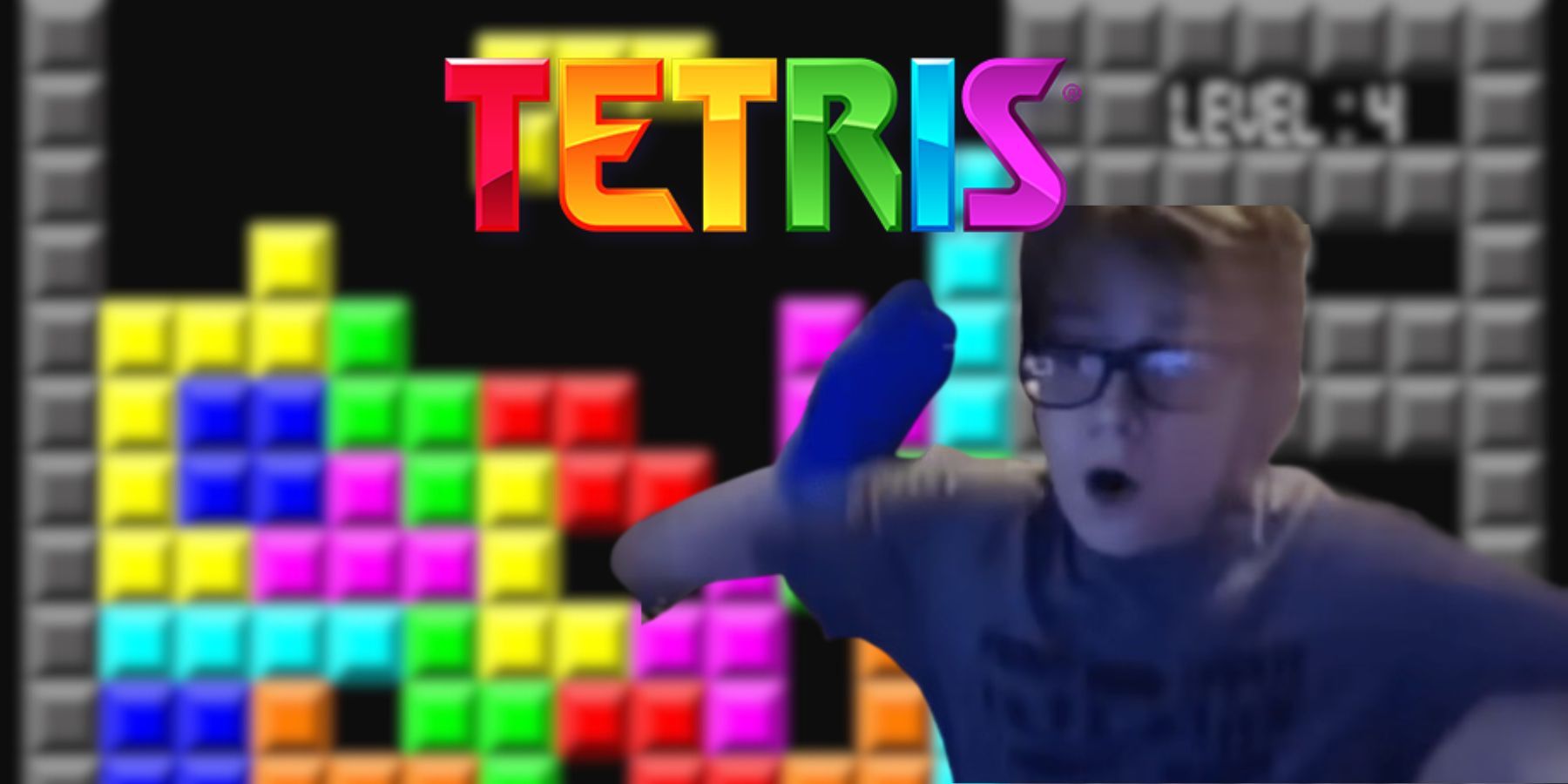
Related
NES Tetris Has Finally Been 'Beaten' After 34 Years
The NES version of Tetris is arguably 'beaten' after 34 years, as a player manages to mark a historic milestone for the game.
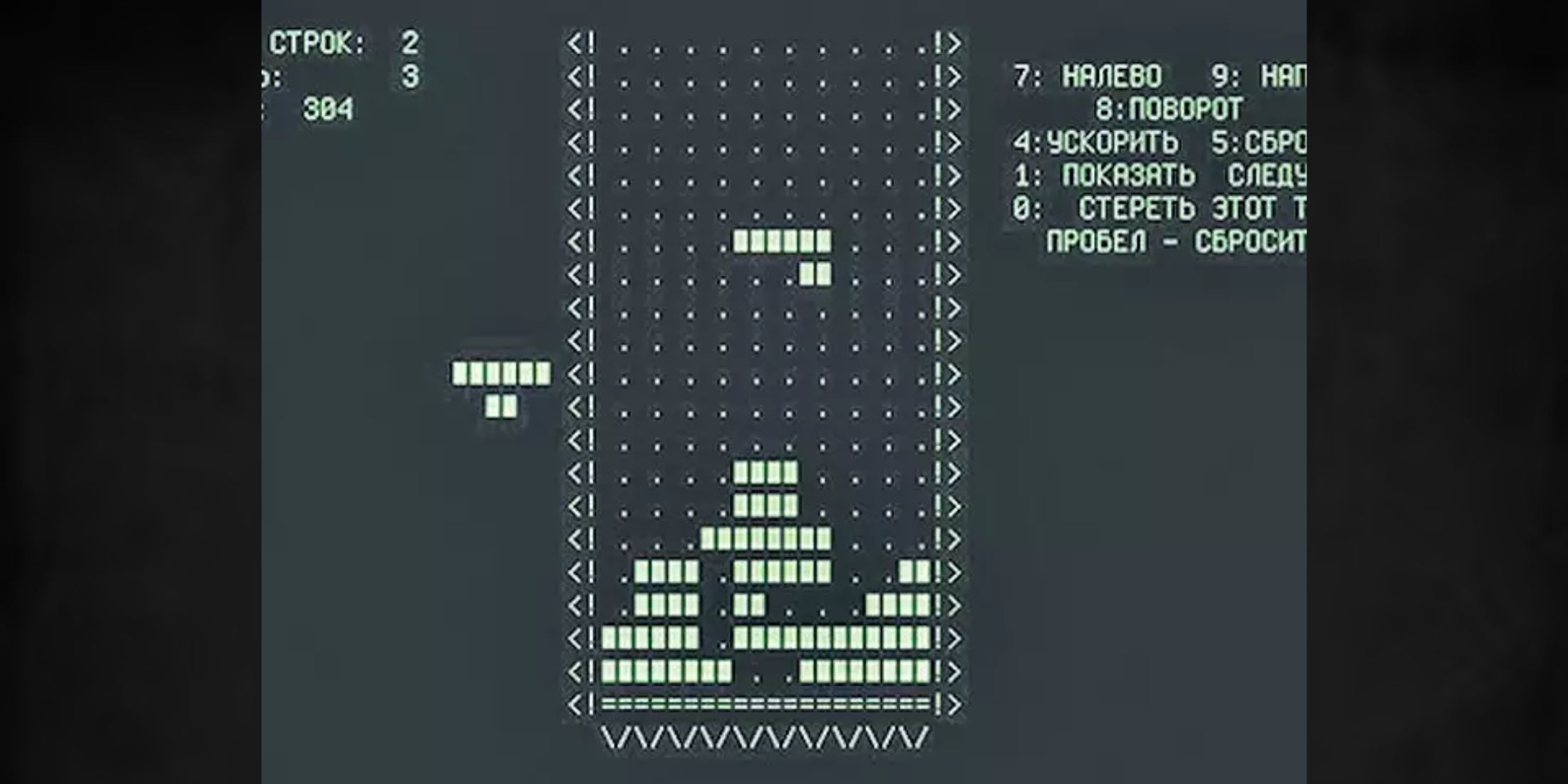
Q: Can you talk about recent work done by the Tetris Company?
A: So, my daughter runs the Tetris Company. She's got maybe a third of our revenue from merchandizing. We have some toys at Costco now. It’s sort of like Jenga, with big blocks to stack up, and if it leans too far one way or the other, it collapses and falls apart. Who would have thought that would be a moneymaker? I think they've already sold millions of dollars' worth of this game. It's like $80 for a box of plastic. But on the game side, I was originally a game designer. So when somebody asks me to think about Tetris, I think about the gameplay and how we can improve it.
There are a lot of things that we're in the process of improving right now. I'm not a big fan of the touchscreen interface the way it is right now, and I think we finally have a solution for it. It took many years to figure this out. On the other hand, there's eSports Tetris. We're at the beginning of eSports, and most or all games that are e-sports games tend to have a half-life of I don't know how many years. Tetris is a game that, not only has it already been here for like 40 years, but it's going to be here forever. Baseball, basketball and football were games that were invented maybe 150 years ago. Yet nobody thinks about them as classic games, because they’re games that are still being played right now.
Tetris is going to go on and on in that same way. We'll have professional Tetris players. So I think eSports is a big direction for us. The other thing that I think is fascinating is the trauma treatment. Neuroscientists figured out that they can cure trauma using games like Tetris. Firstly, the original study that they did was that they made a bunch of students watch trauma videos, and then after the video, half the students got to play Tetris and half didn't. The half that got to play Tetris had half the flashbacks and half the intensity of flashbacks, so that was the first hint that there was something going on there.
More recently, they figured out you can actually take trauma from long-term memory, which is where it sits for you to have PTSD. What PTSD does is it brings it back into short-term memory, and that's where you have this syndrome. But when you bring it back, you can then mess with it by getting somebody to play Tetris right when it's back. Then it totally degrades the memory as it goes back into long-term memory. People lose whatever their angst was over whatever the trauma was. I've seen it with people where they cry about some event in their life and, after doing this, they can talk about it like it happened to somebody else. That's an amazing thing. I don't think Tetris is unique in being able to do this, but there's something there for sure. It's movement, lights, concentration. So all those things put together makes Tetris the perfect game for solving problems.
Q: What are your thoughts on Tetris clones?
A: When somebody copies the game, one way of looking at it is that it's flattery. I'm flattered that they're doing this. But the second thing I'm thinking is, if you want to make money, if you want to get somewhere, don't copy somebody else's game. That's not art. You haven't created anything, so it's like being a cover band. That's a good comparison. You know you can do better than that.
Basically, if they make money, we'll definitely step on them. That's how it works. In order to have an intellectual property, you have to protect it. We've gone back and crushed some wannabes when we needed to. So now it's kind of quiet. You don't see any major company coming up with a 'me too' Tetris. There are just a lot of little guys.
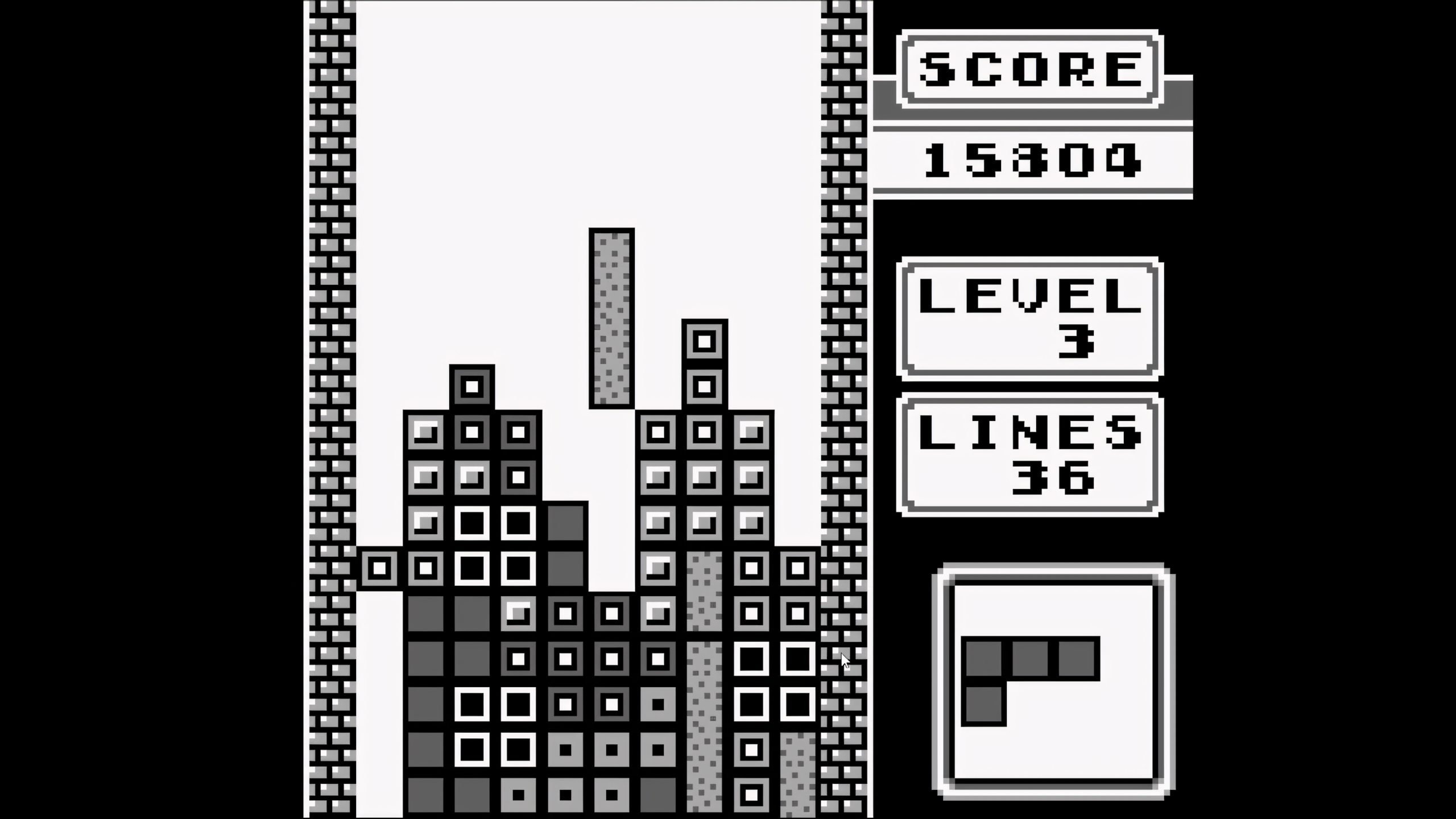
Q: Have you seen any games in recent years that you would consider that stand out to you in the same way that Tetris once did?
A: Unfortunately, no. You know what I play now? I play Wordle. I do that once a day. I actually made a meta game with a bunch of people that I know that are playing Wordle. We add up our score for the entire week, and at the end of the week, whoever has the lowest total gets to make a rule for the next week. There are all kinds of rules that you can get creative with. For instance, you have to start with this word or, in my case, I said you can't use the same letter in the first two words etc. You have to think, and it makes it interesting.
I also play Wordle separately with my 93-year-old father every day. On top of it, I say I'm in Sao Paulo, I'm in Rio, I'm wherever. So he gets a little bit of news about me every day. I think that's a nice thing to keep communication open. There was a week when my brother won, and he said the rule is that we all have to start with the same starting word and the starting word is ocean. And on Friday, the word was ocean. So six of us all got it in one.
Q: Is there anything else you'd like to add about the Tetris Company, or The Perfect Game? Any final thoughts?
A: So I'm going into beta with what I think is the most important game. It's a role-playing game, but instead of playing it in the virtual world, you play it in the real world. What we do is give you a list of things to do that make the world a better place. In the beginning, they're real small things. For example, maybe pick up a piece of rubbish, turn off the lights in a room where there are no people, etc. When you do a bunch of small ones, then you go up a level, and then we give you bigger things to do.
Currently, there are two ways to make points. One is that you take an action, or you do the action, but the best way to make points is if you create an action, and when other people do it, then you get points too. So then it becomes a competition to see who can create the most interesting action, and the AI is going to figure out first whether this is something that's good for the world or not. That's one, but it's also going to figure out how many points these things are worth and how much good each action will actually do. For example, if you turn off a light switch. If a million people do it, that actually means something. Then you can reduce so much carbon from going into the atmosphere.
These are all things that are tangible, and the small actions will add up. At the end of the day, everybody will be competing to go up levels. Now if you're wondering what's the point of going up a level, it's for status. Normally, we gain status by trying to earn more money so that we can buy status symbols like a car. But with this, what I'd like to do for concerts, for example. Let's say the level 7s are going to get to buy tickets on Monday, level 6 on Tuesday, level 5 on Wednesday, and so on.
Basically, what that means is that level 7s get to sit in the front. So we’d sort the people out by level. Then that will be a competition to become a higher level to get closer to the front at a concert, and we could take that concept and use it for a sports event. Again, just an example. It's called the Action App. When you go into development, whatever name you pick during development is more than likely to stick. It's hard to get rid of a name afterward as everybody's so used to it, so we're sticking with that.
[END]
